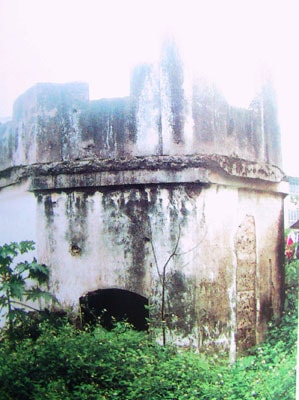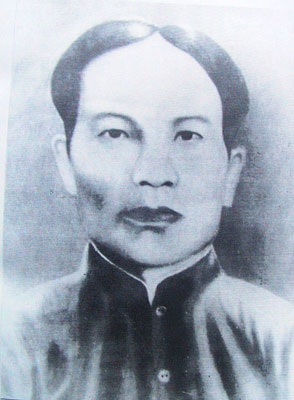Remembering Vinh Prison Party Cell
After the founding of our Party, the struggle movement of workers and peasants in Nghe An rose. The colonial and feudal government responded by bloodily suppressing the struggles and arresting the communist soldiers who led those struggles and putting them in prison. Among them, Vinh Prison was the place where hundreds of political prisoners were detained.
(Baonghean) -After the founding of our Party, the struggle movement of workers and peasants in Nghe An rose. The colonial and feudal government responded by bloodily suppressing the struggles and arresting the communist soldiers who led those struggles and putting them in prison. Among them, Vinh Prison was the place where hundreds of political prisoners were detained.
|
Due to the difficult conditions in the prison, the Party cell secretaries were constantly changing (being transferred to other prisons, having to keep secrets, etc.), so the list of secretaries of each period cannot be fully compiled. However, some comrades who left a deep impression, such as Hoang Trong Tri, Ho Tung Mau, Nguyen Duy Trinh, Nguyen Thi Phuc, etc., are still remembered by many people. According to the memoirs of comrades Chu Van Bien, Nguyen Duc Duong, Nguyen Thi Nhuan, etc., many veteran comrades in Vinh prison who are still alive have told their friends in Thua Thien Hue about this.
The Vinh prison party cell often encouraged its members to engage in literature and entertainment, and to encourage each other to maintain their spirits in the face of the tragedy of torture and harsh prison regimes through poetry! Poetry, in addition to raising the spirit and criticizing colonialism, also "served as a bridge" to the outside world. For example, Secretary Hoang Trong Trinh, thanks to his talent for writing poetry, the prisoner's rice delivery man Bon fell in love with both poetry and people. Thanks to that, through this man, he contacted Comrade Chu Van Bien, a cadre of the Central Region Party Committee; or like Party cell Secretary Nguyen Thi Phuc - a person with a cultural level, beautiful handwriting, and good at writing poetry - wrote a poem criticizing "Send to Trinh kitchen”,sarcastic, humorous words. From then on, the soldiers respected the women very much, afraid of the poems criticizing them written on the walls and spread by word of mouth. They were less aggressive, abusive, and rude to the women.
 |
Guard post of Vinh prison during French colonial period |
The important thing was the coordinated struggles “inside and outside” that put pressure on the feudal colonial government. After the September 12, 1930 demonstration was bloodily suppressed, under the leadership of the Vinh Prison Party Cell, communist soldiers fought together against terrorism. The Prison also held a memorial service for comrades who sacrificed their lives steadfastly, such as Vo Trong Canh (Hung Nguyen) and martyr Phan Cong Thuong (Thanh Chuong). In response, the cowardly enemy burned the blankets, mats, and clothes of the communist soldiers, forcing them to lie on the cold floor. The Party Cell contacted the outside to receive support for clothes and medicine. Many fierce struggles against brutal torture and heavy sentences took place. Frightened by the fighting spirit and public opinion, they made many concessions. For example, the sentence of comrade Hoang Trong Tri was reduced from death to life imprisonment. Or in 1939, when comrade Sieu Hai - Secretary of Vinh District Party Committee was arrested for the third time and imprisoned in Vinh prison, the Party cell coordinated "inside and outside" to fight for his freedom. The enemy was forced to release him, even though they plotted to harm him by causing hidden injuries.
In any period, the Vinh Prison Party Cell must fight resolutely against the harsh prison regime, protect life, and then continue to work for the Party's revolutionary cause. Therefore, the struggle to improve life through meals, sleep, and living conditions must be organized and systematic. Many such struggles have taken place. For example, the struggle byhunger strikeof 12 prison cells, protesting against the couple Doi Ba and the contractor judge Hue forcing prisoners to eat moldy rice mixed with sand, fish with maggots, and rotten vegetables. Or else, fighting to demand that female prisoners be allowed to bathe during their menstrual periods; not to bully or humiliate women, etc.
The Vinh Prison Party Cell operated until August 1945. The lesson that some cadres imprisoned in Vinh Prison who were still alive and attended the exchange, discussed with the delegation of imprisoned revolutionary cadres of Thua Thien - Hue province in the past 2 days of meeting was:Wherever they are, communists must unite and love each other to defeat the enemy and overcome all difficulties. On the other hand, the strength of party members is only multiplied when they are in a party cell. The role of the party cell is extremely important, even in the former imperial prisons, as well as in war and peacetime, building and protecting the country today.
Thanh Nam







